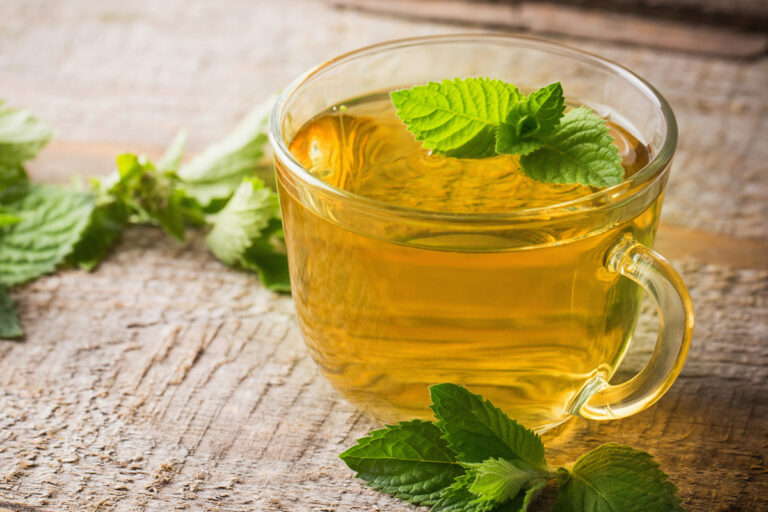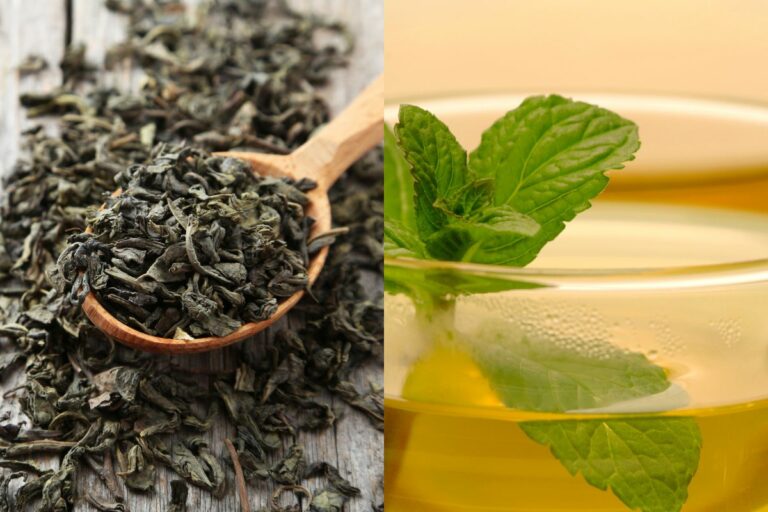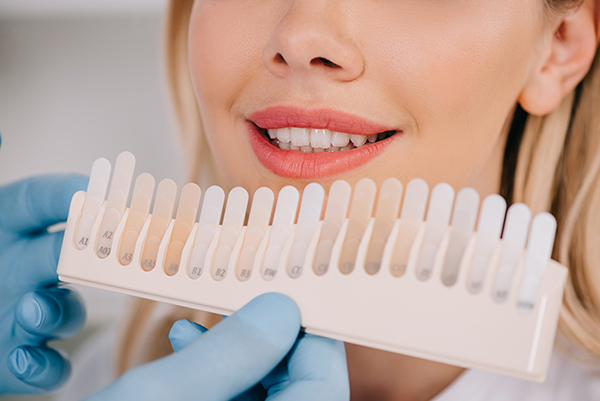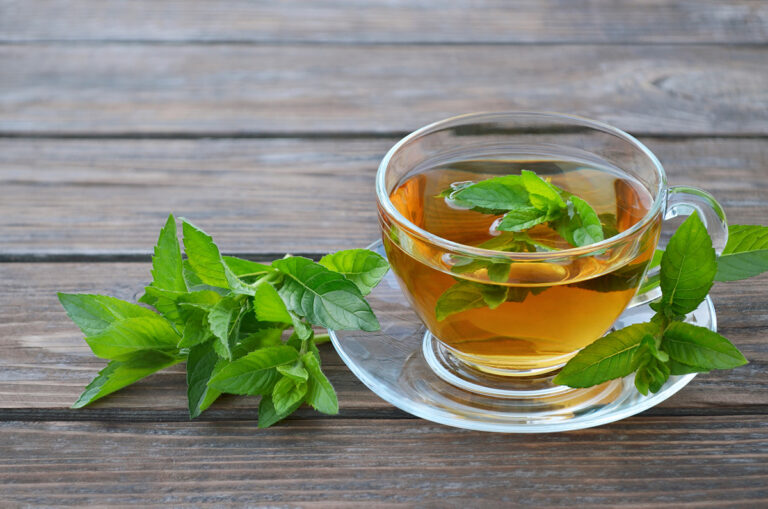Peppermint Tea 101: Benefits, Side Effects, and More
In the realm of herbal infusions, peppermint tea has secured its position as a beloved classic. It’s well-regarded for its cool, refreshing taste, but its appeal goes far beyond flavor.
The brew offers a myriad of health benefits, though, like anything else, it’s important to be aware of potential side effects.
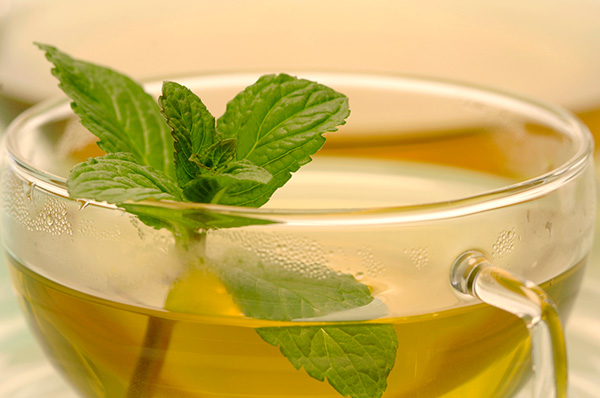
What Is Peppermint Tea?
Peppermint tea is a type of herbal tea, or tisane, made from the leaves of the peppermint plant, known scientifically as Mentha piperita. This tea, like most herbal teas, is naturally caffeine-free. The dried or fresh leaves are steeped in hot water, releasing a characteristic minty aroma and a flavor that’s both sweet and slightly spicy. The resulting brew is often appreciated for its soothing qualities.
Potential Health Benefits of Peppermint Tea
Beyond its refreshing taste, peppermint tea offers a range of health benefits.
Digestive Health
Peppermint tea has long been prized for its ability to soothe digestive ailments. Menthol, the primary active ingredient in peppermint, is known to relax the muscles of the gastrointestinal tract. This effect can help alleviate symptoms like bloating, gas, and stomach cramps. Moreover, research suggests that peppermint may be beneficial in managing irritable bowel syndrome (IBS) symptoms.
Stress and Anxiety Relief
The menthol in peppermint also possesses natural sedative and antispasmodic properties. This means drinking a cup of peppermint tea might help you unwind after a stressful day, soothing your mind and body. It’s important to note, however, that while peppermint tea may aid in relaxation, it should not replace medical treatment for serious anxiety disorders.
Respiratory Benefits
If you’ve ever inhaled peppermint’s cooling aroma, you won’t be surprised to hear that it can benefit the respiratory system. Menthol acts as a natural decongestant, potentially relieving symptoms of sinusitis and colds. Plus, peppermint tea’s warm vapors may aid in clearing the nasal passages.
Peppermint Tea Side Effects
While the benefits of peppermint tea are impressive, it’s crucial to also be aware of potential side effects.
Heartburn and GERD
Peppermint’s muscle-relaxing properties, while beneficial for digestion, can sometimes backfire. For individuals suffering from heartburn or gastroesophageal reflux disease (GERD), peppermint might relax the sphincter between the stomach and esophagus, allowing stomach acid to flow back, exacerbating these conditions.
Allergic Reactions
Although rare, some people may experience allergic reactions to peppermint. This might include symptoms like skin rash, headaches, mouth sores, or even difficulty breathing. If you notice any of these symptoms after consuming peppermint tea, seek medical attention immediately.
Does Peppermint Tea Have Caffeine?
No, peppermint tea does not contain caffeine. This makes it an excellent choice for individuals looking to reduce their caffeine intake or those who prefer to avoid it entirely.
Best Peppermint Teas for Your Next Cup
Numerous peppermint options are available, from loose-leaf and tea bags to K-cups, and from popular peppermint to spearmint and Moroccan mint. Through testing, we’ve identified the best peppermint teas in every possible category.
If you’re interested in a blend, peppermint tea is often combined with other herbs to boost its health advantages. A notable blend is seven blossoms tea, a synergistic blend of linden flower, valerian root, passionflower, manita flower, tilia flower, spearmint leaf, peppermint leaf, lemon balm leaf, and orange oil, typically used to encourage sleep, alleviate stress, and enhance relaxation.
How to Make Peppermint Tea
Preparing peppermint tea is simple:
- Boil water to a temperature of approximately 200°F (93°C).
- Place 1-2 teaspoons of dried peppermint leaves (or 1-2 fresh peppermint sprigs) in a teapot or mug.
- Pour the hot water over the peppermint leaves.
- Steep for 5-10 minutes, depending on your taste preference.
- Strain the leaves and enjoy your peppermint tea!
Always remember to follow the manufacturer’s guidelines if you’re using a pre-packaged product.
Final Thoughts
Peppermint tea is more than just a refreshing beverage. It’s packed with health benefits, from aiding digestion to relieving stress. However, like all things, it should be consumed in moderation, keeping an eye out for potential side effects, especially if you’re prone to heartburn or GERD, or if you suspect you might have an allergy to peppermint.
FAQ
What Does Peppermint Tea Taste Like?
Peppermint tea boasts a flavor profile that’s simultaneously sweet and spicy. It’s best known, of course, for its powerful minty punch that leaves a cool, refreshing aftertaste.
How Do I Make Peppermint Tea Taste Better?
If you find the minty flavor too strong, you can adjust it to your taste. Adding a spoonful of honey or a slice of lemon can help to balance the intensity of the mint. If you prefer a softer flavor, steep the tea for a shorter time.
How Does Peppermint Tea Differ From Other Teas?
Unlike traditional teas derived from the Camellia sinensis plant, peppermint tea is an herbal infusion made from the peppermint plant. It has a distinct minty flavor and is caffeine-free.
Here’s a detailed comparison of peppermint tea vs. green tea.
Does Peppermint Tea Help With Constipation?
Peppermint tea may not directly help with constipation, but it can provide some relief from digestive discomfort due to its soothing and antispasmodic properties. However, the scientific evidence supporting its effectiveness for constipation is limited. It is recommended to increase water and fiber intake, and engage in regular physical activity for more effective relief from constipation.
If you’re struggling with constipation, consider trying other types of tea.
Does Peppermint Tea Stain Teeth?
Unlike black tea or coffee, peppermint tea is unlikely to stain teeth. Its light color and the absence of tannins, the compounds responsible for staining, make it a teeth-friendly choice. However, maintaining proper dental hygiene is still crucial, no matter what your beverage of choice is.
Is Peppermint Tea Good for Vocal Cords?
Yes, peppermint tea can be good for vocal cords. Its natural anti-inflammatory properties can help soothe the throat, reduce vocal cord swelling, and promote a healthy voice. However, it’s recommended to drink it lukewarm as very hot or cold drinks can strain the vocal cords.
Is Peppermint Tea Good for Sore Muscles?
Peppermint tea may potentially help soothe sore muscles. Peppermint contains a compound known as menthol, which is known for its analgesic, or pain-relieving properties. It can create a soothing sensation that could help relax muscles and reduce discomfort. However, most research around peppermint and pain relief focuses on topical application, not ingestion.
Is Peppermint Tea Good for Mucus?
Yes, peppermint tea can be beneficial for mucus. Peppermint contains menthol, which has a cooling effect and can help soothe sore throats and act as a decongestant, potentially helping to thin and reduce mucus.
Is Peppermint Tea Good for Sinus Infection?
Peppermint tea might help alleviate some symptoms of a sinus infection. Peppermint contains menthol, which can act as a natural decongestant, providing relief from nasal congestion.
Is Peppermint Tea Good for Period Cramps?
Peppermint tea has antispasmodic properties that may help relax the muscles of the uterus, which can alleviate menstrual cramps. However, everyone’s body responds differently, and it may not work for everyone.
Is Peppermint Tea Good for Headaches?
Peppermint tea may help with headaches as peppermint has been shown to have pain-relieving and muscle-relaxing effects, which can be beneficial for tension headaches. However, its effectiveness can vary from person to person.

